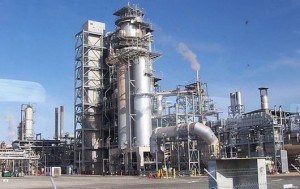Nairobi – Kenya will invest Sh6.38 billion for a three per cent share in the proposed oil refinery in Western Uganda. Kenyan Energy Principal Secretary Joseph Njoroge said the government is awaiting details of the $2.5 billion (Sh213 billion) refinery plans before a final decision is taken.
It is understood that Rwanda may have paid for its share of equity following an invitation last September by Uganda to all EAC members.
The refinery will be developed on a public-private partnership basis, where the East Africa countries will hold 40 per cent shares while the private sector takes 60 per cent reports Kenyan’s local newspaper, the Daily Nation.
“The Government of Uganda has invited both Kenya and Rwanda to buy small shares in the refinery. The offer is about three per cent, which will have no effect on our other plans,” said Mr Njoroge on telephone.
Under the Lapsset Corridor Project, Kenya plans to set up two refineries, at the Lamu port and in Isiolo. The latter could, however, be affected by Uganda’s decision to set up its own plant given that it was proposed to supply Eastern Africa market.
Uganda plans to develop a refinery with an input capacity of 60,000 barrels per day (bpd), starting with a capacity of 30,000 barrels per day by 2018, which will be enhanced to 60,000 barrels per day before 2020.
The first phase will supply oil to Uganda, Rwanda and Burundi with the second expected to produce enough for the whole of the Eastern Africa market.
“We have asked for the feasibility study and economic details for assessment and then decision making,” Mr Njoroge said.
Uganda, which is acquiring 29 square kilometres of land for the refinery, has hired US energy investment firm, Taylor DeJongh as transaction advisor charged with sourcing for the lead investor and financing.
UK energy firm, Foster Wheeler Energy Ltd conducted a feasibility study, which recommended that a refinery was a more commercially viable option with a net present value of $3.2 billion at a 10 per cent discount rate, and an internal rate of return of 33 per cent.
Following confirmation of commercial oil reserves in 2006, Uganda initiated a national oil and gas policy in 2008 to address the entire spectrum of exploration, development, production and valuable utilisation of the country’s resources.
The Ministry of Energy and Mineral Development later formulated a refinery development programme to guide the set up of a refinery. The programme is in line with the East African regional refineries development strategy that was adopted by EAC partner-states in 2008.



